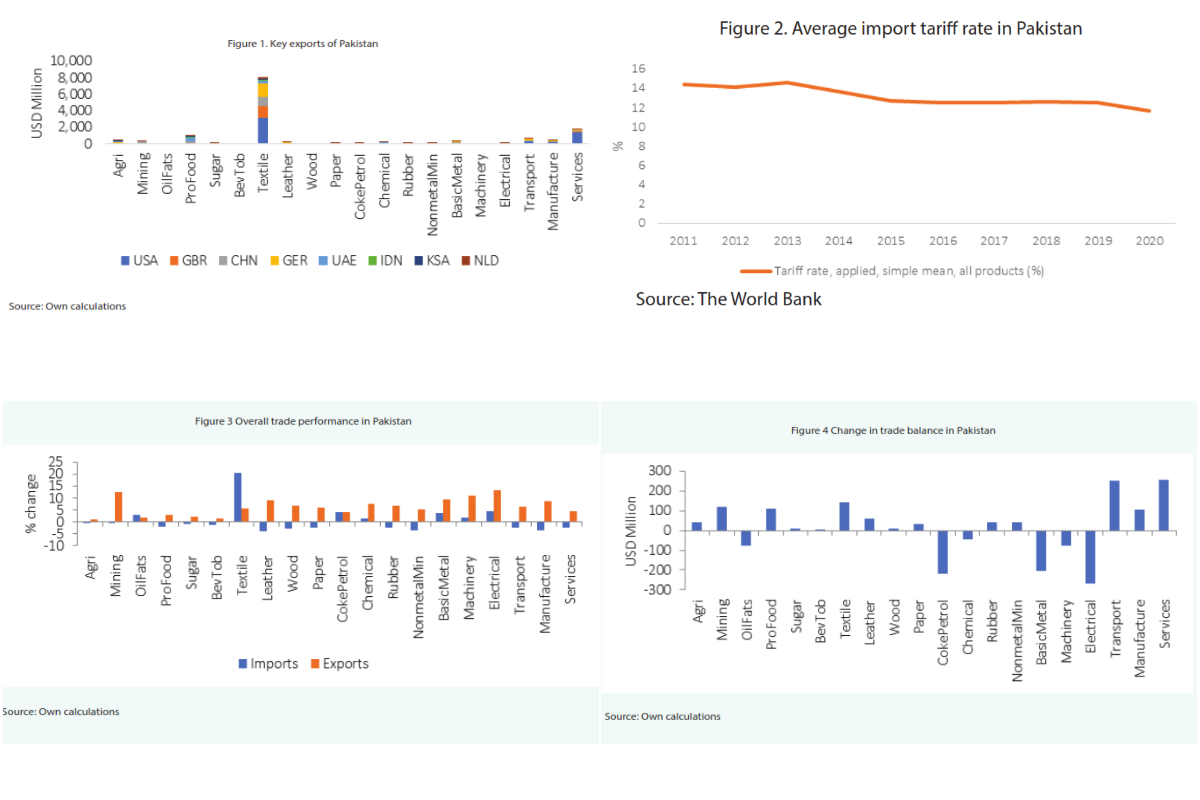
Stagnant exports scale up trade deficit
KARACHI: Stagnant exports have scaled up the trade deficit in Pakistan. To add new export items to the existing export portfolio, the local industry needs cheaper domestic and imported intermediate inputs, said Muhammad Zeshan, Research Fellow at the Pakistan Institute of Development Economics.
However, these inputs are expensive in Pakistan due to high import tariffs. It is believed that lower tariffs will not only provide cheaper intermediate inputs to domestic firms and final products to the end users but will also boost trade, he added.
Textile is the main exporting sector in Pakistan, which constitutes around 51 per cent of the total exports. Similarly, copper constituted almost half of the total exports in Chile.
However, the country achieved a fruitful modification of its export structure and expanded to new comparative advantages.
The new export product diversification was not an easy option for Chile but was the result of the country’s persistent commitment towards a liberalised trade policy during the period 1973/90 and fruitful results emerged in the late 1990s, Zeshan noted.
It is argued that a diversified portfolio of export products can effectively add to the trade surplus.
New imported intermediate inputs provide access to new embedded technologies and the right combination of imported and domestic intermediate inputs can shape a new export product for a new market.
According to him, to capture the new markets of higher value-added products, many firms introduce new products to their export portfolio, while simultaneously reducing the size of the existing export products.
There are various types of trade regulations and restrictions in Pakistan but the present study focuses only on import tariffs. In today’s competitive environment, the average rate of import tariff is around 12 per cent in Pakistan.
For Zeshan, the high import tariffs reallocate different factors of production such as skilled and unskilled labour and capital stock from the competitive export industries to the protected local industries.
Further, it adversely affects the textile sector in Pakistan, which is the backbone of the export industry. Overall value-addition in this industry has decreased over time and there is a dire need for a major overhaul to boost its productivity.
Lower tariff rates can increase the cheaper supply of new technology-augmented intermediate and capital goods, which is crucial for the revival of this sector industry, he remarked.
Hence, the present study assumes that there are no tariffs on the top 10 import products of Pakistan, which are heavily protected in reality.
In this setting, the end users get access to the cheaper final products and firms get access to cheaper intermediate imported inputs from the international market.
Further, it reduces the cost of domestic intermediate inputs and final products in the local market. As a result, on an average imports increase between 4.3 per cent and 1.6 per cent in all the sectors where tariffs are eliminated, but 20.4 per cent in the textile sector.
Nonetheless, imports decrease in all other industries where the tariff rates remain unchanged. Overall, the exports rise in all the sectors, where electrical equipment, mining and machinery are the most growing industries.
Interestingly, the trade balance in the textile sector still remains positive (trade surplus of $143.7 million).
Overall, the trade balance improves by nearly 338.14 million, indicating that the advantages of reducing trade barriers are far more than their disadvantages, Zeshan concluded.
Catch all the Economic Pulse News, Breaking News Event and Latest News Updates on The BOL News
Download The BOL News App to get the Daily News Update & Live News.








 Read the complete story text.
Read the complete story text. Listen to audio of the story.
Listen to audio of the story.